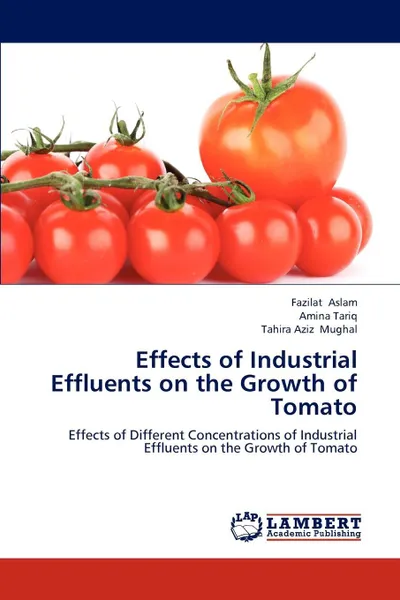Effects of Industrial Effluents on the Growth of Tomato 12+
2012
64 страницы
Категория: Научная литература
ISBN: 9783659209734
Язык: Английский
📗 In that research work the effect of different concentrations of Industrial effluents on the vegetative & reproductive growth of Lycopersicon esculentum was investigated.The experiment was conducted using a completely randomized design in dry condition at the Botanical garden of LCWU, Lahore from April 2010 to July 2010. Tomato plants were used for experimentation. There were 5 replicates & 5 treatments viz. Tap water(T0), 25% Industrial water(T1), 50% Industrial water(T2), 75% Industrial water(T3) & 100% Industrial water(T4). The seeds were sown (1 seed in each pot), & after the germination of seeds, the plants were watered using the different concentrations of Industrial effluents.Vegetative growth of plants was monitored during the course of experiment viz. plant height, number of branches per plant, number of leaves per plant & number of senescent leaves per plant. The reproductive growth was marked by the number of flowers produced per plant. The best vegetative growth was observed in 50% Industrial water(T2)& the least growth was demonstrated by the plants of T4 (100% Industrial water), but the flower production was initiated almost at almost at the same time in all treaments.
Мнения
